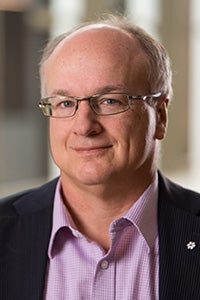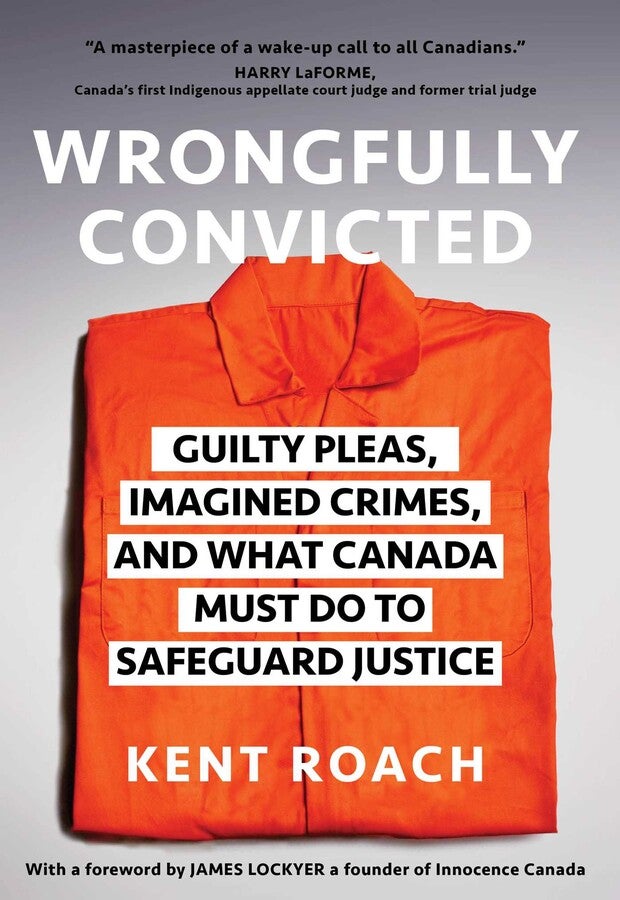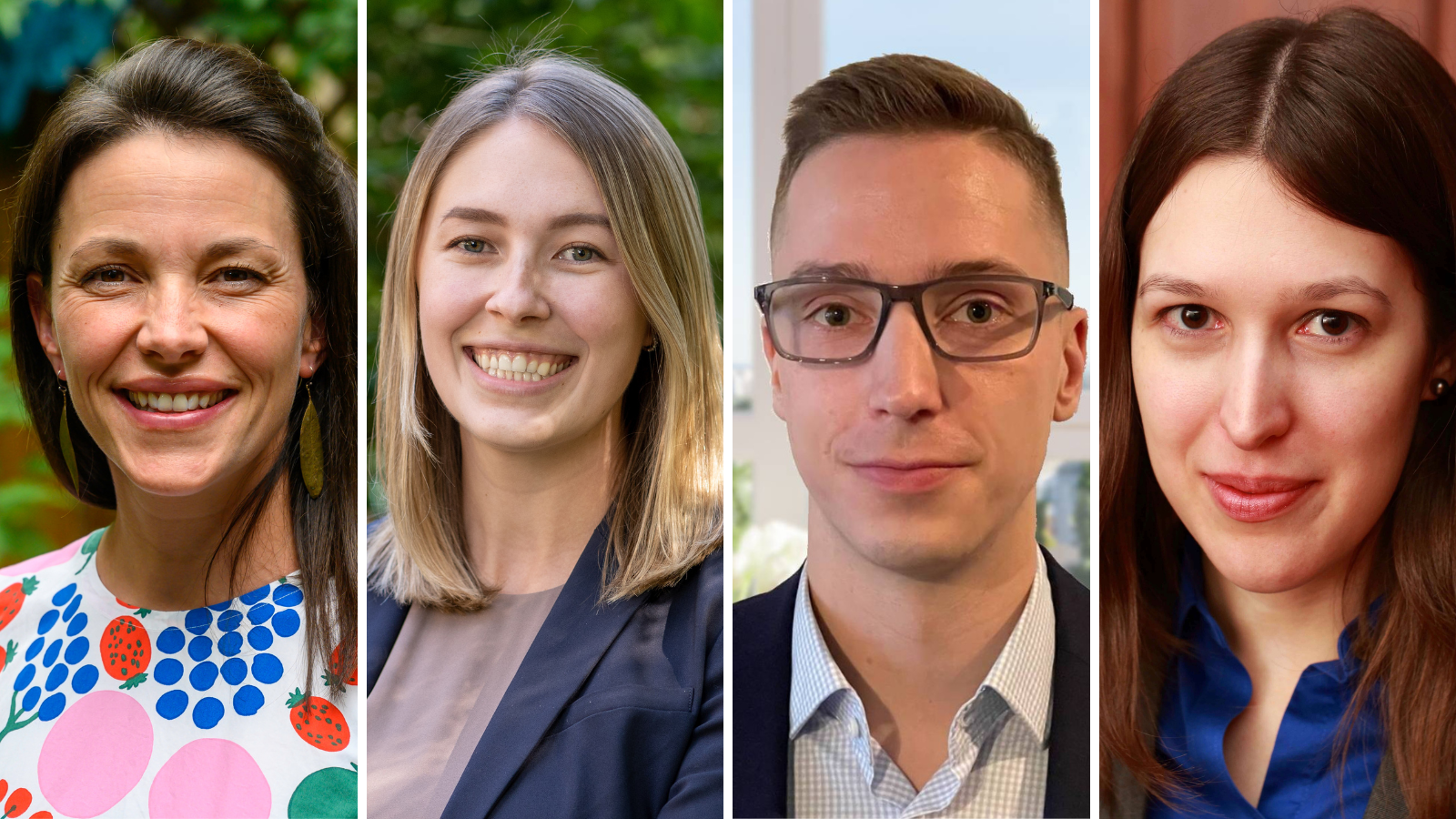Kent Roach, a professor in the University of Toronto's Faculty of Law, and four alumni of the JD program - Amanda Carling, Jessie Stirling, Joel Voss and Sarah Harland-Logan - have launched the Canadian Registry of Wrongful Convictions.

Kent Roach
The registry includes 83 publicly documented cases where a criminal conviction was overturned based on new matters of significance related to guilt not considered when the accused was convicted or pled guilty. The researchers do not have access to confidential information, do not make determinations of guilt or innocence, nor do they act on behalf of the wrongfully convicted.
Initiated in 2018, the registry has been developed with the dedicated support of multiple U of T Law student researchers and several William Southam Journalism Fellows from U of T's Massey College.
Roach has been teaching a course on the subject of wrongful convictions for more than two decades.
"Students are asked, what are the facts of the case? It's important that we problematize this idea that the facts are the facts," says Roach. "Wrongful convictions are largely the result of factual errors: Mistaken eyewitness identification, people lying, expert witnesses basing their testimony on their interpretation of the facts and their opinion."
Roach says the wrongful convictions recorded in the registry "are underinclusive of all miscarriages of criminal justice because of the difficulty people experience, once they have been convicted, in finding new evidence and having the courts accept it."
 In the registry's first report - Canada Has a Guilty Plea Wrongful Conviction Problem - Roach highlights some key findings about the relationship between guilty pleas and wrongful convictions.
In the registry's first report - Canada Has a Guilty Plea Wrongful Conviction Problem - Roach highlights some key findings about the relationship between guilty pleas and wrongful convictions.
"We weren't surprised that 18 per cent of the cases that met our definition were the result of false guilty pleas," says Roach. "What was surprising, however, was that almost all the people who pled falsely were Indigenous, racialized, female or living with a disability."
Most miscarriages of justice happen when vulnerable people without proper legal representation plead guilty to get it over with, says Carling.
A Métis lawyer and the chief executive officer of the BC First Nations Justice Council, Carling worked at Innocence Canada for three years before joining Roach to co-teach the wrongful convictions course at the Faculty of Law.
"I did a lot of public legal education, primarily in First Nations, about the causes of wrongful convictions," she says. "As a new lawyer, I wanted to share the little that I knew to try to prevent miscarriages of justice. I had seen firsthand how difficult it is to overturn a wrongful conviction and how few resources there are in Canada to support victims of miscarriages of justice.
"But when I did those presentations, when I talked about the leading causes of wrongful convictions, I used the statistics from the U.S. registry [because] we didn't have Canadian data."
Stirling, who is Kwakwaka'wakw and a member of the Wei Wai Kum First Nation on Vancouver Island, says Indigenous and racialized people are overrepresented among the wrongfully convicted.

From left to right: Amanda Carling, Jessie Stirling, Joel Voss and Sarah Harland-Logan.
"That much is clear when you look at the Registry's data visualizations," she says.
A primary contributor to the registry, Stirling's work on the project began in 2018 as a Gerald W. Schwartz research fellow at U of T Law. She received the U of T President's Award for Outstanding Indigenous Student of the Year in 2020.
"As a research fellow, I worked to compile our master list of cases and refine our research parameters. I also researched and wrote on Indigenous wrongful convictions and, since 2018, I have been responsible for managing the project," adds Stirling, who is now an associate at Olthius Kleer Townshend LLP, a leading Aboriginal Law firm in Canada.
Voss, who works in securities compliance, began volunteering with the project in 2020 with a focus on data analysis, research, data entry and website development.
"From our current dataset, approximately one-third of the wrongful convictions stem from an instance in which no crime occurred," says Voss. "To me, this is staggering. Many of those cases involved a loved one passing away. Invariably, the wrongfully convicted person lost a loved one and then on top of that had to suffer through a justice system that got it wrong. This is a problem in Canada, and we need to do some work to uncover the full extent of this problem."
Part of uncovering the truth requires coming to terms with the reality of Canada's colonial history. For example, the registry - funded in part by a grant from the Bennett Family Foundation - includes a timeline of miscarriages of justice dating back to 1755, when 8,000 Acadians were expelled from Nova Scotia over doubts of loyalty to the British Crown.
"The first step unpacking Canada's colonial legacy is educating people," says Carling. "Our timeline and the cases that are included in the registry are just the beginning of the story that the Canadian criminal justice system has - and continues to - get wrong."






